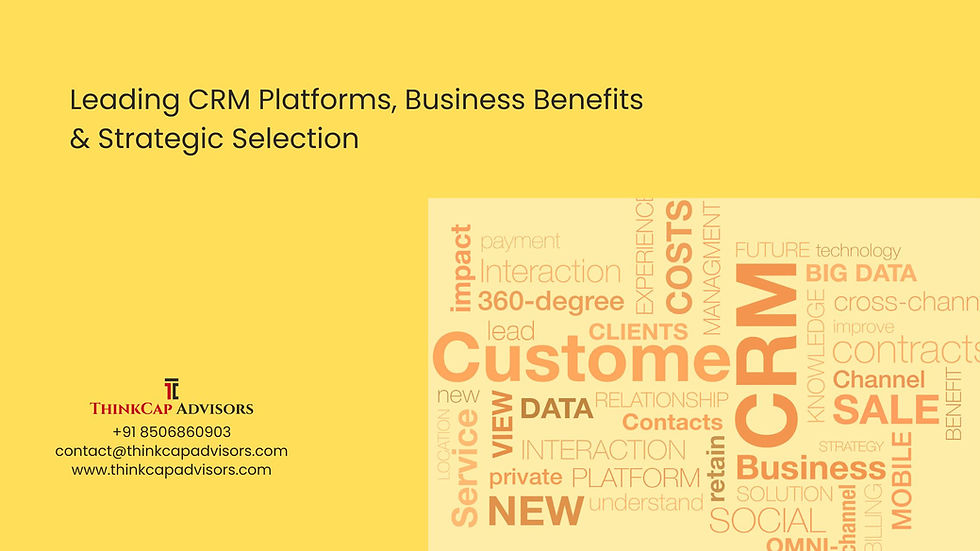CRM – Driver of Customer Acquisition and Engagement for EdTech Companies
- Apr 9, 2023
- 2 min read
Updated: Oct 3, 2023

With the Indian education system going the tech way – driven by online learning and mobile apps. Companies must track each learner from brand interaction to app downloads from subscription purchases & app usage to consuming learning content. Since the luxury of physical contact is missing, the brand must track each step of the student journey.
The business model of EdTechs is driven by hyper-personalized digital communication. Therefore, traditional SFA-driven CRM applications fail to realize the desired outcomes.
Similarly, CRM consulting firms offering CRM consulting services also need to look beyond conventional implementation methods and approach the project in a product-agnostic fashion, where a combination of modules and products gets integrated to complete the CRM stack.
Some of the applications that become part of the CRM suite can include:
CMS System – Design web and landing pages to track user interaction on the web assets
Marketing Automation – Drive use cases of app downloads/platform signups, personalized content recommendations, and subscription purchases. Drive user engagement and product adoption
Cloud Telephony Systems – For contact center operations to manage inbound and outbound calls supporting telesales, customer support and customer engagement.

Sales Force Automation (Lead management, Activity management, Pipeline) – For telesales and field sales executives to manage leads generated from multiple campaigns and channels. lead nurturing, categorization & sales conversion.
Customer Service – In a modern app-based business model a customer service suite will have a larger role as a customer engagement platform. The suite will track support tickets from multiple channels. Chat module can be used to support use cases of subscription purchase, app usage and teacher support. The knowledge base can be used to house FAQs and Q&A based content.
Bots/Email/WhatsApp/SMS – To power use cases of presales, post-sales, user onboarding and user engagement. Examples: subscription purchase alerts, renewal reminders, new content upload, live class reminders, and query resolution alerts.

As a CRM consulting firm, we have realized that it is not always feasible to work with one CRM vendor for all the requirements mentioned above. Depending upon the scale and complexity of use cases the company should look at 2 or 3 vendors and integrate the software solutions.
We believe and recommend that CRM implementation is a journey. An organization should implement CRM applications in order of priority and business needs. Example: If lead leakages and telesales management is a pain point, one can start implementing an S.F.A solution integrated with a cloud telephony system to power lead to sales conversion.
Also, CRM advisory & implementation companies when consulting should understand the business use case and recommend whether a single CRM suite can meet requirements or whether customers should adopt a multi-product approach.




Comments